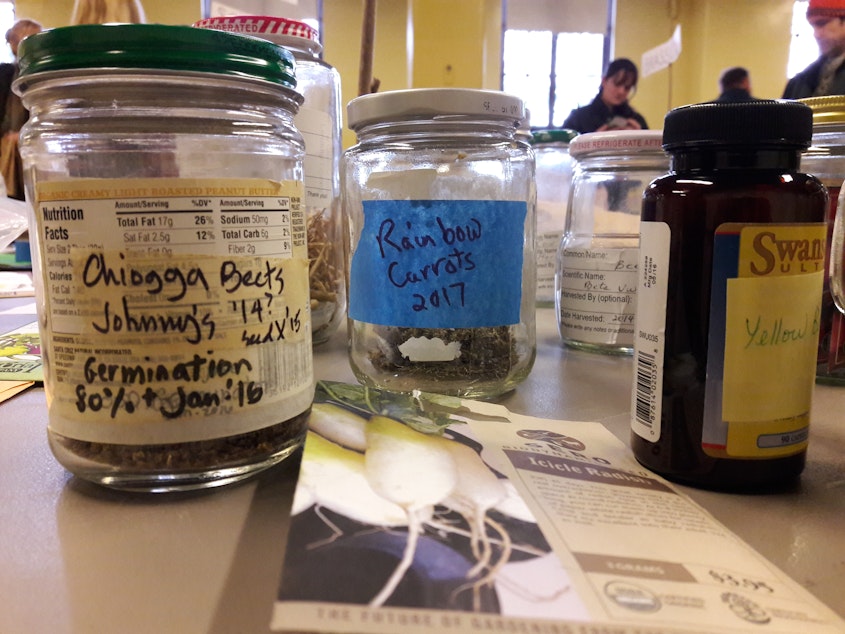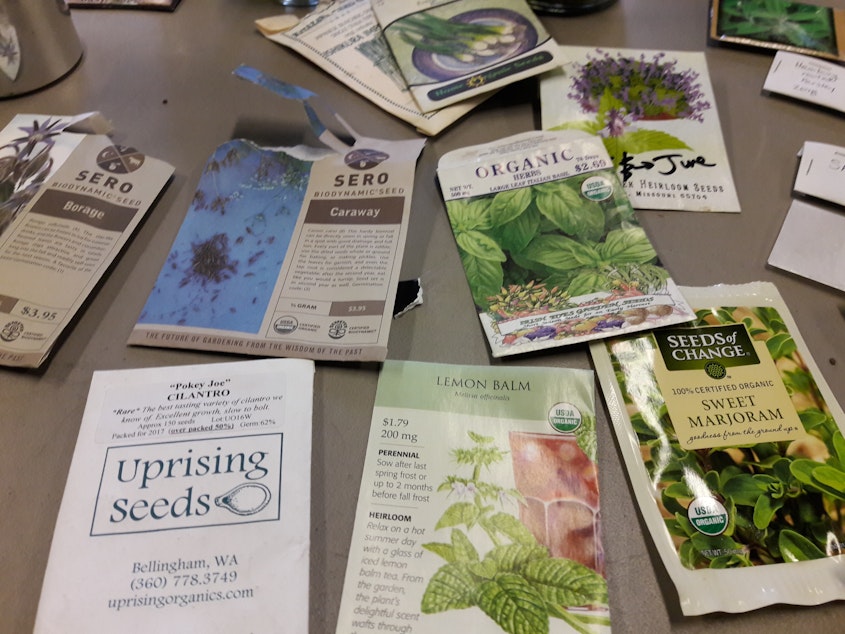Ignore the ice and snow: Seattle gardeners are swapping seeds and dreaming of spring

Winter is too cold for anything to grow, but it’s the perfect time to plan and daydream about what to plant in the spring.
That's why Seattle gardeners recently met at the Phinney Center for a seed swap in preparation for their spring plans.
The event drew dozens of gardeners, both skilled and novices. Kate Landis took up gardening last year.
“I’m more enthusiastic than knowledgeable definitely!” she chuckled.
Landis, who came down from Edmonds, brought some envelopes to collect the seeds she wants to try.
“These, I’ve never grown these before," she explained. "They’re borage, but they have edible flowers and leaves. I’ve been watching way too much Great British Baking Show and so I want some edible flowers to put on things!”
At the swap, seeds are separated into categories: seeds for beans, seeds for root crops like beets and carrots, seeds for broccoli and cabbage, and seeds for much more.
Sponsored
Bill Thorness is coordinator with the King County Seed Lending Library, a community based group focused on saving and sharing seeds.
“Anything that we can save seed from, or that people have extras from commercial seeds that they want to donate to us, we will set it out and let people take just as much as they’d use in their garden," he said.

Thorness says the process is simple: Just take a few seeds and try them out in your yard. And, just like a library, at the end of the season, people can bring back seeds from the ones they planted.
Sponsored
It’s not only economical — Thorness says seed-sharing helps promote biodiversity.
“Seed companies have consolidated and if the seed varieties aren’t selling very well, they just let them die off," he said. "So in this way we can keep heirloom varieties alive and share them. And more people will find them and realize these old varieties are wonderful.”
Thorness points to one of the heirloom seeds being offered at the swap: the black Spanish radish. Like the name suggests, it’s black. But that’s not why it’s unique.
Thorness says that instead of eating the root, like you do with a typical radish, you let the black Spanish radish grow through the winter. By spring, it grows into a big bush filled with pods that are edible.
Seattle gardener Prema Jones says she comes to the swap every year. Not just for the seeds, but to be in the company of fellow gardeners.
Sponsored
“This time of year I’m always inside the house dreaming by myself and I get to come out and be with other gardeners," Jones said. "And we’re like coming out of our shell together, you know, dreaming about our gardens.”
You don’t have to be a master gardener to dream. Thorness suggests starting with beans and lettuce because they’re easy to grow. If all goes well, he says you can add more to the mix.
And if not, try again. Thorness says that’s the beauty of vegetables — they’re annual plants, and every year there’s another chance to grow something new.




